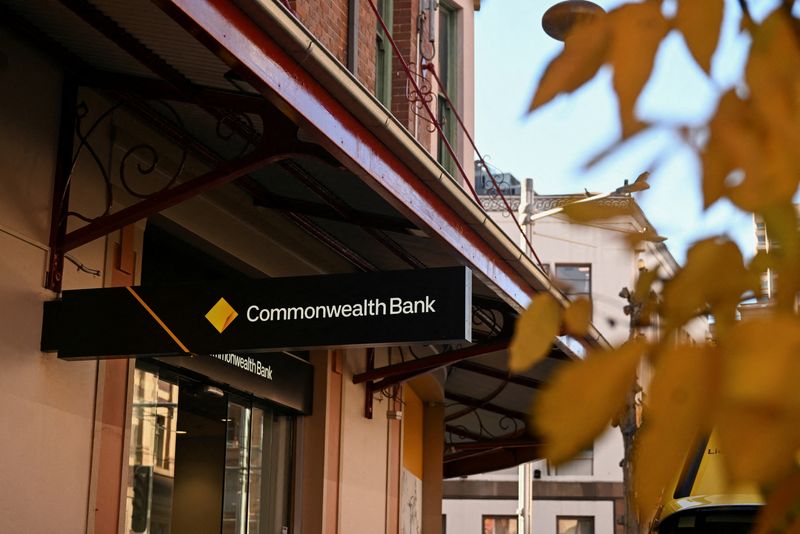By Byron Kaye
SYDNEY (Reuters) -The CEO of Australia's biggest bank on Thursday decried the rise of misinformation and labelled a proposed tax on big company profits meritless, pushing back against what he called "insidious populism" in relation to the corporate sector.
The testimony by Commonwealth Bank of Australia (OTC:CMWAY) (CBA) CEO Matt Comyn at a routine parliamentary hearing on Thursday marked a break from the deferential tone that Australian bank bosses have generally taken since they began the compulsory appearances in 2017 when the industry was mired in scandal.
Asked about point-of-sale surcharges that businesses charge Australians who pay for goods with debit and credit cards, Comyn denied the fees were a way for banks to grow profit. The Reserve Bank of Australia has said it may ban payment surcharges, but Comyn said claims banks generated A$4 billion ($2.72 billion) a year from them were untrue.
"This sort of continuing, often fact-free rhetoric that's being published more broadly is very damaging," Comyn said.
He was being asked about the fees by a lawmaker who held up a A$5 note in one hand and a credit card with "A$5.08" written on it in the other, referring to the price of a coffee, but stressed that he was concerned about the impact of false claims on society generally.
"It is really eroding trust in institutions. That's weakening, driving a fundamental distrust across citizens," added Comyn, who started as CEO in 2018.
"You must be seeing it. We are seeing it. I don't think the right thing is to position things when they're factually incorrect, as I believe that you are."
Referring to the politician's props, Comyn added: "It's not a like-for-like comparison."
Asked about a policy proposed a day earlier by the left-leaning Greens party, which has 12 of Australia's 76 senators, to raise taxes on big banks and miners to collect an additional A$514 billion over 10 years, Comyn called the proposal "an example of insidious populism".
The policy seemed based on a "false dichotomy that there is something unjust and that profit has been unjustifiably extracted and there's a reason that this should not (be so)", he said.
It was an example of "performative policies that are designed to attract attention, that lack rigour and merit", he said.
"A number of them rely on assumptions that are just demonstrably false."
Comyn defended the bank's decision to raise the potential bonus for the bank's mortgage providers above 50% of base pay, a cap recommended by a 2017 review, saying the limit put the bank at a competitive disadvantage against non-bank brokers who did not have the same cap.
"It simply cannot be that there is an undue level of concern over, we're talking about a few hundred lenders, versus the 20,000 mortgage brokers that don't have any of the controls that we're talking about," he told the hearing.

Peter King, the CEO of Westpac, Australia's third-largest lender by market value, said the question of mortgage broker bonuses was "a live consideration for us because I cannot be in a situation where my best will go to another organisation".
($1 = 1.4732 Australian dollars)